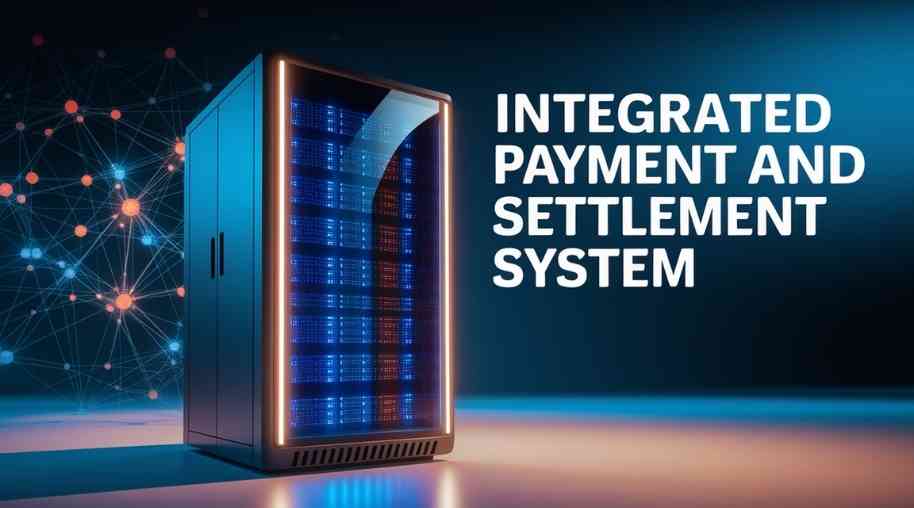IPSS Full Form-Integrated Payment and Settlement System
by Shashi Gaherwar
0 2432
Integrated Payment and Settlement System: Enhancing Financial Transactions
The Integrated Payment and Settlement System (IPSS) is a modern financial infrastructure designed to streamline digital transactions, ensure real-time settlements, and enhance the security of payments. As the world shifts towards cashless economies, integrated payment systems have become crucial for ensuring efficient, secure, and seamless monetary transactions across banking and financial networks.

This article explores the concept, working mechanism, benefits, and challenges of an Integrated Payment and Settlement System in today’s digital economy.
Understanding the Integrated Payment and Settlement System
An Integrated Payment and Settlement System refers to a centralized digital network that facilitates and settles financial transactions between banks, businesses, and consumers. These systems are responsible for processing various forms of payments, including:
- Interbank Transfers
- Real-Time Gross Settlement (RTGS) Transactions
- Automated Clearing House (ACH) Payments
- Card-Based Transactions (Credit/Debit Cards)
- Mobile and Digital Wallet Transactions
How Does It Work?
- Transaction Initiation: A payer initiates a payment through a bank, mobile wallet, or payment gateway.
- Authentication & Verification: The system verifies the transaction details and ensures adequate funds or credit availability.
- Processing & Routing: The payment is processed through financial networks, involving banks, clearinghouses, and settlement agencies.
- Settlement Completion: The transaction is finalized, funds are transferred, and the recipient receives confirmation.
Types of Payment and Settlement Systems
Integrated payment systems operate through various models, catering to different transaction needs:
1. Real-Time Gross Settlement (RTGS)
- Processes high-value transactions instantly.
- Used for interbank and corporate payments.
- Ensures real-time fund settlement without netting.
2. Automated Clearing House (ACH) Systems
- Handles bulk transactions like payroll processing and utility bill payments.
- Funds are cleared and settled in batches.
3. Immediate Payment Service (IMPS)
- Facilitates instant mobile and online banking transactions.
- Used widely for small and medium-sized transactions.
4. National Electronic Funds Transfer (NEFT)
- Processes low-value, non-urgent transactions in batches.
- Operates within specified time slots.
5. Payment Gateways and Digital Wallets
- Includes platforms like PayPal, Google Pay, Apple Pay, and Stripe.
- Enables seamless online and retail payments.
Key Benefits of an Integrated Payment and Settlement System
1. Faster and Real-Time Transactions
- Enables instant fund transfers, reducing delays in business and consumer payments.
- Supports real-time settlement, enhancing liquidity and cash flow.
2. Enhanced Security and Fraud Prevention
- Utilizes multi-factor authentication, encryption, and AI-driven fraud detection.
- Reduces risks associated with unauthorized transactions and cyber threats.
3. Cost Efficiency for Businesses and Banks
- Minimizes transaction processing costs by eliminating intermediaries.
- Reduces reliance on paper-based transactions and manual processing.
4. Global Connectivity and Cross-Border Payments
- Supports seamless international transactions.
- Reduces costs and settlement time for cross-border trade and remittances.
5. Increased Financial Inclusion
- Expands access to digital banking for underbanked and rural populations.
- Enables mobile-based financial services and microtransactions.
Challenges and Risks in Integrated Payment Systems
1. Cybersecurity Threats and Data Breaches
- Rising cases of cyberattacks and hacking pose risks to payment systems.
- Financial institutions must implement strong security protocols.
2. Regulatory Compliance and Legal Barriers
- Varying regulatory frameworks across countries can slow down adoption.
- Compliance with AML (Anti-Money Laundering) and KYC (Know Your Customer) laws is mandatory.
3. System Downtime and Technical Failures
- Any system outage or failure can disrupt transactions at a large scale.
- Requires robust infrastructure and backup systems.
4. High Implementation Costs for Businesses
- Small businesses may struggle with integration costs for advanced payment systems.
- Requires investments in technology, security, and staff training.
Global Examples of Integrated Payment and Settlement Systems
1. SWIFT (Society for Worldwide Interbank Financial Telecommunication)
- Used for secure international bank transactions.
- Connects more than 11,000 financial institutions globally.
2. UPI (Unified Payments Interface) – India
- A revolutionary digital payment system enabling real-time bank transfers.
- Facilitates P2P (peer-to-peer) and merchant payments.
3. Fedwire – United States
- The Federal Reserve’s RTGS system for large-value payments.
- Used by banks for real-time interbank settlements.
4. SEPA (Single Euro Payments Area) – Europe
- Streamlines euro transactions across European nations.
- Facilitates fast, secure, and standardized payments.
Future of Integrated Payment and Settlement Systems
With the rise of digital transformation and fintech innovations, payment systems are expected to evolve with the following trends:
1. Blockchain and Cryptocurrency Integration
- Decentralized finance (DeFi) solutions like Bitcoin and Ethereum-based payments.
- Increased use of stablecoins for cross-border transactions.
2. AI-Driven Fraud Prevention and Automation
- Machine learning algorithms to detect and prevent fraudulent activities.
- Automated payment approvals for faster processing.
3. Expansion of Central Bank Digital Currencies (CBDCs)
- Governments exploring CBDCs to enhance financial security and efficiency.
- Countries like China (Digital Yuan) and the EU (Digital Euro) leading the way.
4. Biometric and Contactless Payments
- Increased adoption of facial recognition and fingerprint-based transactions.
- Growth of NFC-enabled tap-and-go payments.
The Integrated Payment and Settlement System is a critical component of modern financial infrastructure, enabling faster, secure, and cost-effective transactions. With advancements in real-time payments, digital wallets, and blockchain technology, payment systems are evolving to support a truly cashless and borderless economy.
As regulatory frameworks improve and fintech innovations grow, integrated payment systems will continue to enhance global financial transactions, paving the way for a more inclusive and connected financial world.
Further Learning Resources
If you’re passionate about building a successful blogging website, check out this helpful guide at Coding Tag – How to Start a Successful Blog. It offers practical steps and expert tips to kickstart your blogging journey!
For dedicated UPSC exam preparation, we highly recommend visiting www.iasmania.com. It offers well-structured resources, current affairs, and subject-wise notes tailored specifically for aspirants. Start your journey today!

Share:









Comments
Waiting for your comments